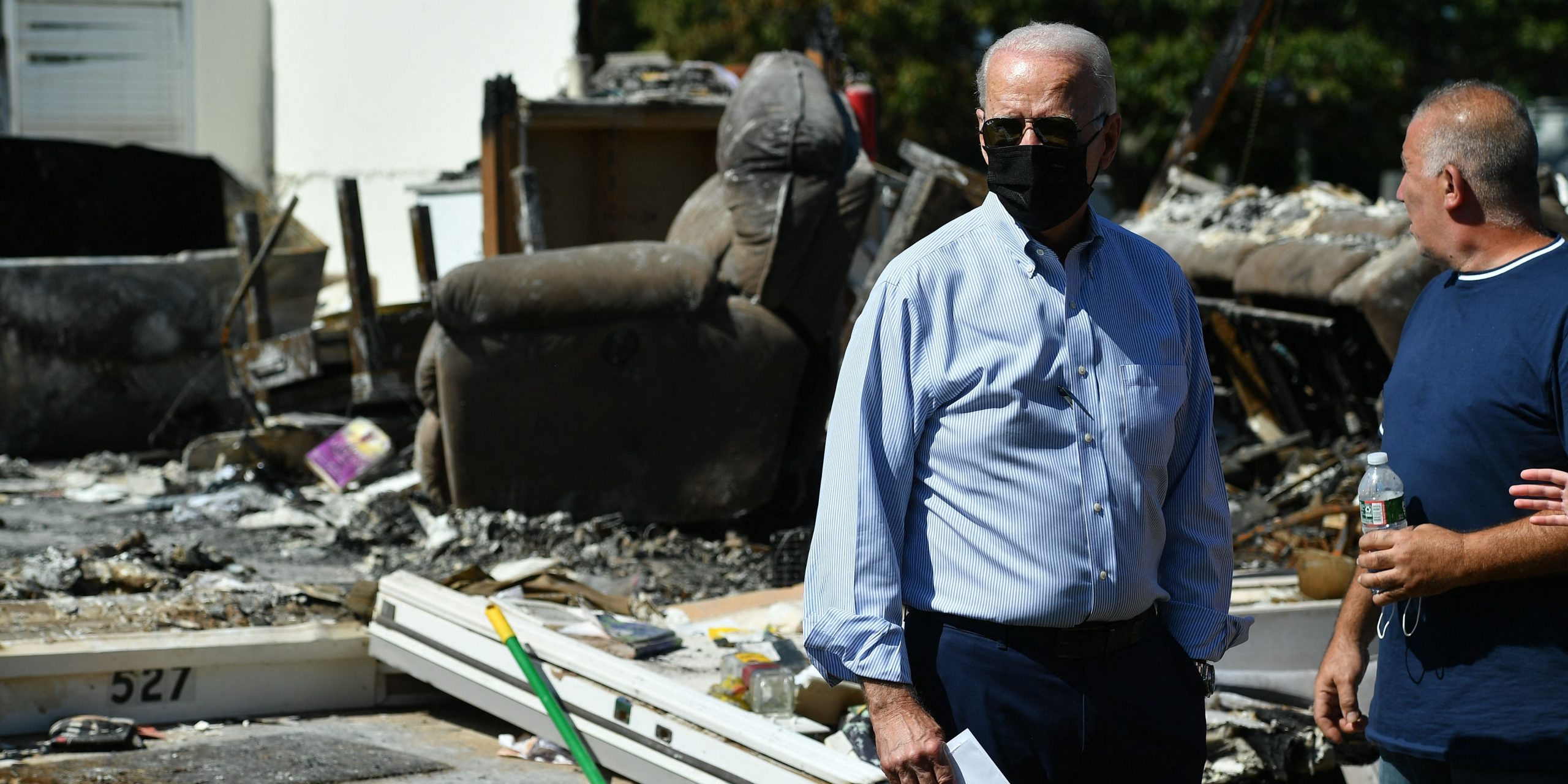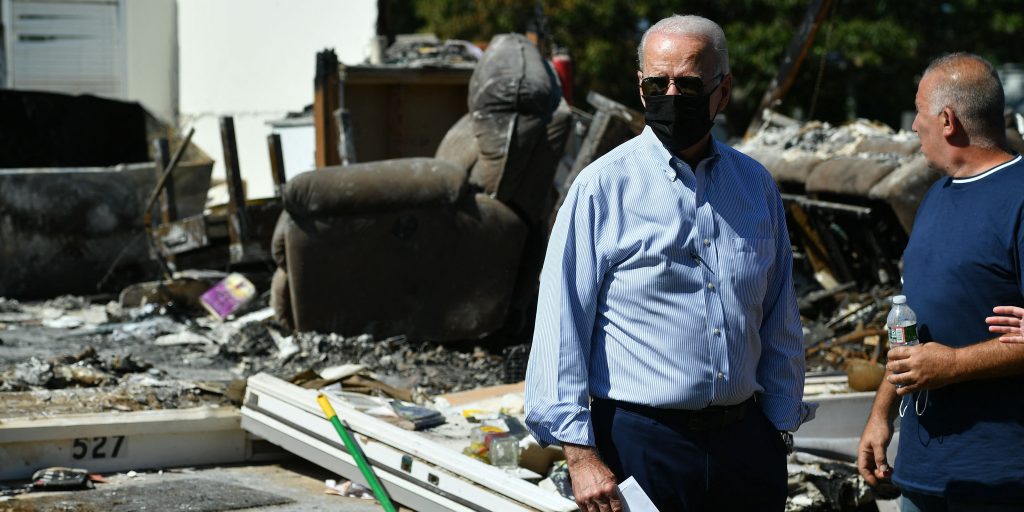
Mandel Ngan/AFP
- Biden said workers will earn high wages to prepare for climate change under his resilience plan.
- The president's Build Back Better proposal includes jobs that pay "$45 or $50 an hour."
- In addition, he said the plan returns $6 in savings for each dollar invested to prevent disaster.
- See more stories on Insider's business page.
Jobs that help prepare the US for a changing climate will pay a high hourly wage, President Joe Biden said after touring storm damage in New York and New Jersey on Tuesday.
"I think of one word when I think of climate change: jobs. Good-paying jobs," he said. "Not $7 or $12 or $15, but $45, $50 an hour, plus healthcare. That's what is needed."
Biden's $45 figure is more than six times higher than the current Federal minimum wage of $7.25 per hour, which has remained unchanged since 2009 when Biden was vice president in the Obama administration.
Businesses are increasingly finding it difficult to attract talent by offering less than $15 per hour, making that a de facto minimum wage.
Biden described increased spending on climate resilience as a smart investment, claiming that each dollar invested under his Build Back Better plan in things like flood mitigation, forest fire prevention, and burying electrical lines leads ultimately to six dollars in savings.
"The storm in the Gulf, as you've now figured out, can reverberate ten states away," he said. "Supply chains and crop production get interrupted, driving up costs, devastating industries all over America. This is everybody's crisis."
Tripti Bhattacharya, an environmental science professor at Syracuse University, told NPR that Ida had "just the right mix of weather conditions" in place to wreak havoc across the Northeast more than 1,000 miles from where it made landfall in Louisiana.
"A storm like this would have been exceptionally rare 20 or 50 years ago, but we have to start thinking about it becoming the norm as the climate warms," she said.
Against that backdrop, Biden is pitching his multi-trillion-dollar spending plan as a win-win in both economic terms and, more importantly, lives saved.
"It's serious, serious business," he said. "We got a lot of work to do."

